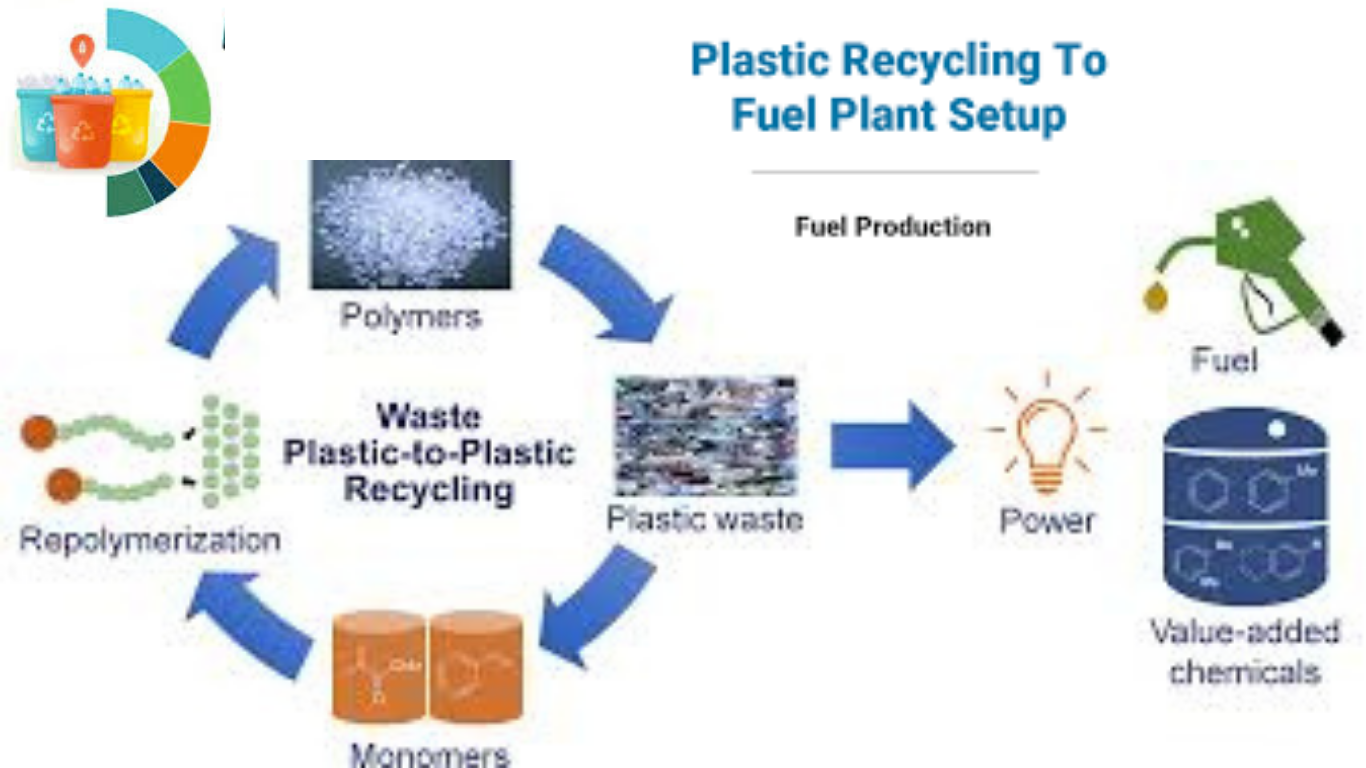Plastic Waste to Fuel Conversion information of project report

Project Title: Plastic Waste to Fuel Conversion
1. Introduction
Plastic waste is a major environmental concern due to its non-biodegradable nature. Converting plastic waste into fuel provides a sustainable and economically viable solution for waste management and energy generation.
2. Objective
To reduce plastic waste through a sustainable process.
To produce usable fuels (diesel, petrol, gas) from plastic waste.
To create an eco-friendly alternative to traditional waste disposal methods.
3. Scope of the Project
Collection and segregation of plastic waste.
Processing plastic waste using pyrolysis or other technologies.
Recovery and refinement of fuel products.
Utilization or sale of the produced fuel.
4. Types of Plastic Used
Polyethylene (PE)
Polypropylene (PP)
Polystyrene (PS)
Polyethylene Terephthalate (PET) — limited use due to by-products
Polyvinyl Chloride (PVC) — usually avoided due to toxic emissions
5. Technology Used
Pyrolysis Process
A thermal degradation process in the absence of oxygen.
Temperature range: 300°C–500°C.
Converts plastic waste into:
Liquid fuel (pyrolysis oil)
Gas (used to heat the reactor)
Char (residue)
6. Process Flow Diagram (Simplified)
Collection & Sorting
Shredding
Feeding into Reactor
Heating (Pyrolysis)
Condensation of Vapors
Fuel Storage
Gas Recycling/Emission Control
7. Output Products
Liquid Fuel (Pyrolysis Oil) – Can be refined into diesel or petrol.
Non-condensable Gas – Reused for heating the system.
Char/Carbon Black – Used in construction or as a filler.
8. Benefits
Reduces plastic pollution.
Generates energy/fuel from waste.
Lower carbon footprint than incineration.
Creates job opportunities.
9. Environmental Considerations
Emission control systems required.
Proper disposal or use of char.
Avoidance of PVC due to chlorine content.
Regular monitoring for dioxins and furans.
10. Economic Feasibility
Moderate capital investment.
Profit from selling fuel and by-products.
Government subsidies or carbon credits may apply.
11. Challenges
Sorting and cleaning of plastic waste.
Emissions control and regulation compliance.
Public awareness and supply chain setup.
12. Conclusion
The plastic-to-fuel conversion process presents a promising approach to address both energy needs and plastic waste management. With the right technology and environmental safeguards, this project can contribute significantly to sustainable development.
